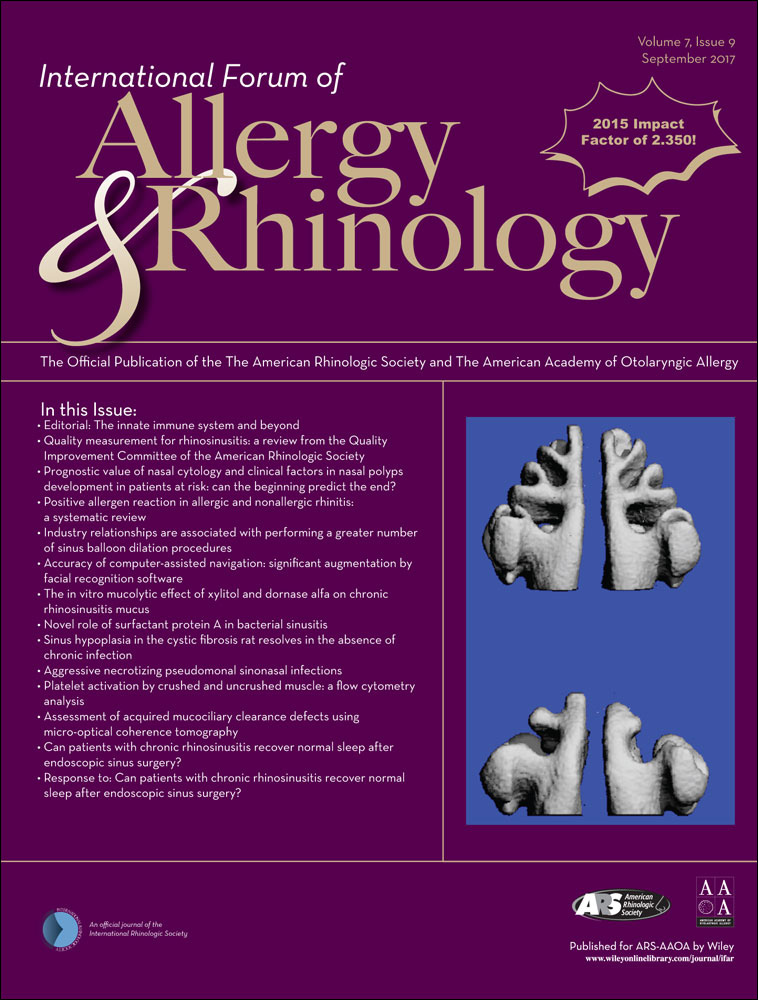The in vitro mucolytic effect of xylitol and dornase alfa on chronic rhinosinusitis mucus
Funding sources for the study: Garnett Passe Rodney Williams Memorial Trust.
Potential conflict of interest: None provided.
Abstract
Background
The overproduction and stagnation of purulent mucus impair mucociliary clearance and exacerbate the symptoms of chronic rhinosinusitis (CRS). There is a clinical need for effective topical mucolytic agents to facilitate removal of mucus and improve postoperative outcomes.
Methods
The effects of xylitol (5%) and dornase alfa (1 mg/mL) on mucus and mucus crusts were investigated. Viscoelasticity and viscosity of wet mucus derived from 30 CRS patients was measured with a plate rheometer. Postoperative dried mucus crust dissolution was measured by examining peripheral transparency, central transparency, and border definition of treated crust samples from 17 CRS patients.
Results
Xylitol and dornase alfa reduced wet mucus viscoelasticity at a frequency of 0.1 Hz significantly more than the saline control. Treatments also produced significantly lower viscosities than saline at a shear rate of 10 and 100 seconds−1. Xylitol and dornase alfa significantly decreased mucus crust border definition relative to saline.
Conclusion
Xylitol and dornase alfa may be efficacious mucolytics, encouraging the breakdown of postoperative mucus crusts and the reduction of viscoelasticity and viscosity of wet mucus. In vivo study is required to evaluate the potential of these agents in treating recalcitrant CRS.




